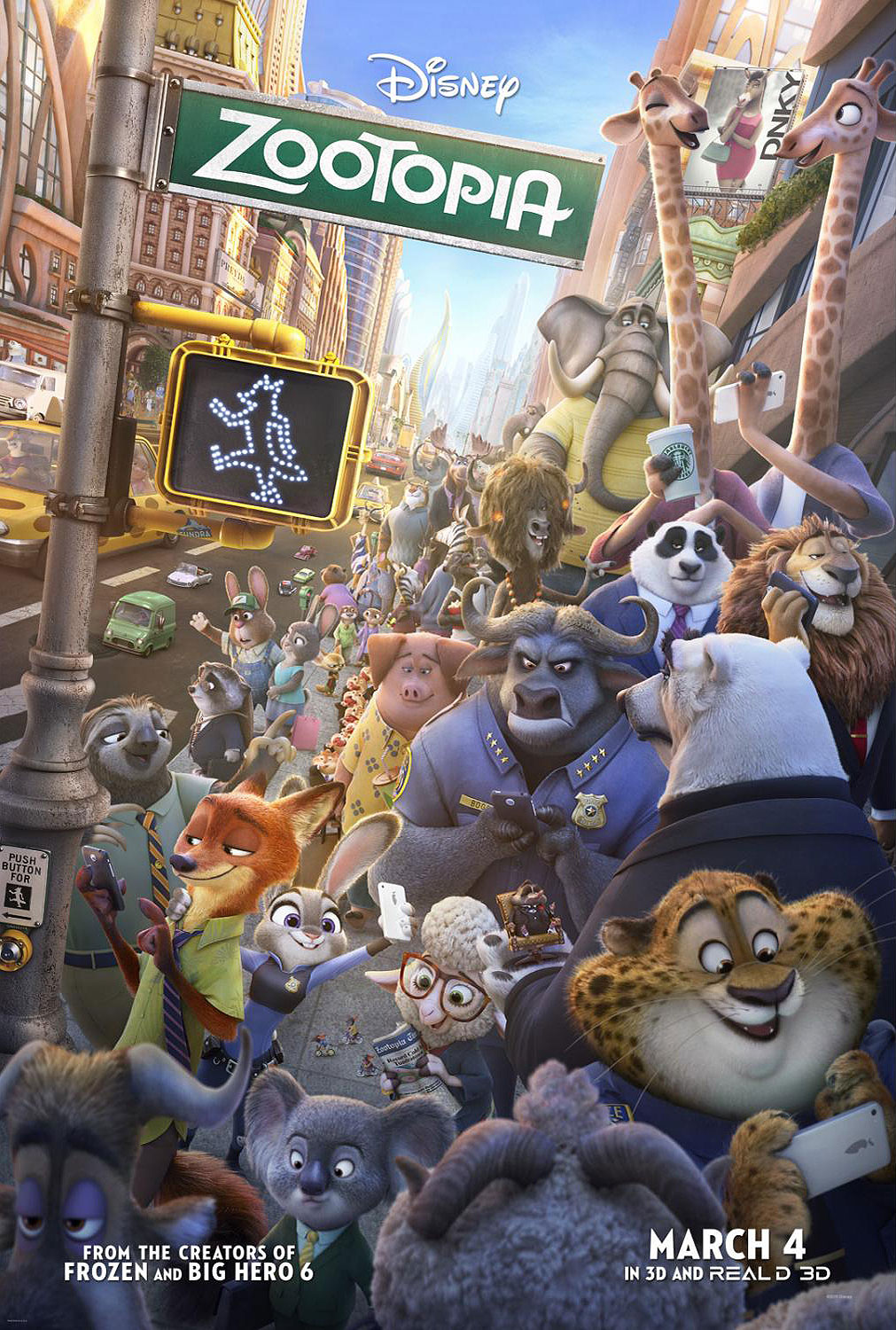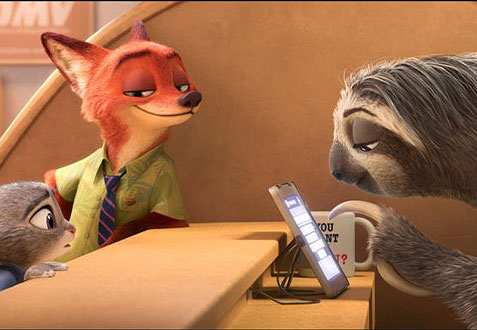
“Zootopia” might be the cleverest bait-and-switch Disney has ever pulled. All of the teaser ads and promotional materials are pushing the adorable Judy Hopps and her very funny encounter with the sloths running the DMV. What they conveniently leave out is that the movie is an on-point commentary about prejudice and racism, their origins, how they’re used as a weapon for political gain, and how we’re all guilty of them in one form or another. In fact, it’s tempting to resent the film a little, because it explains these subjects to children better than most parents ever could.
The film opens with an expository children’s play that explains how predator and prey in the animal kingdom have found a way to co-exist without, you know, one eating the other (though what the predators eat instead is never mentioned, outside of doughnuts). One of the stars of that play is the idealistic bunny Judy Hopps (Ginnifer Goodwin), who announces on stage that she intends to be the world’s first bunny police officer, and many years later, against all odds and her parents’ wishes, she succeeds. She is transferred to the big city of Zootopia, where Sergeant Bogo (Idris Elba) assigns her to…parking duty. Ouch.
The urge to fight crime is strong, though, and Judy zones in on a seemingly untrustworthy fox named Nick Wilde (Jason Bateman, whose character bears an uncanny resemblance), only to become a victim to one of his many cons. Judy is desperate to prove herself to Bogo, and agrees to take on the missing case of an otter against Bogo’s wishes. Bogo initially fires her for insubordination, but instead gives her 48 hours to find the otter, after which Judy must resign if she fails. Judy leans on Nick – whom she has under her thumb because she has enough evidence to have him locked up – to guide her through the big city, even though Nick tends to cause more problems than he solves.
It’s a genius setup, really. Leveling the playing field in the animal kingdom allows the writers, two of whom are “Simpsons” alums Rich Moore and Jim Reardon (they know a thing or two about writing with heart and subtlety), to explore how different species might represent various ethnicities, and in some instances the same character can be assailant or victim, depending on the circumstances. The text is even loaded with words like the aforementioned ‘predator’ and ‘prey,’ words that the worst of our government officials love to throw around as a means of scaring people. That they are able to plant the seeds for all of this so early on, yet keep it under wraps for as long as they do, is to the writing staff’s great credit.
The device that propels the plot is a whodunit, something that fails animated films targeting children far more than it succeeds. (“Cars 2” and “Despicable Me 2,” we’re looking in your direction.) This one is good, though. Adults might guess the Who and Why if they’re lucky, but not likely the How, which is the most important of the three. The animation is stunning (though, once again, do not bother spending extra cash to see this in 3D), and Goodwin is immensely likable as the plucky Judy. Bateman is expertly cast as the deadpan, street-smart Nick, though character depth begins and ends with them. (Nate Torrence’s Clawhauser was clearly meant to be this film’s Olaf, but it just isn’t happening.) The writers even slipped a couple of Disney references into two of the supporting character names.
Disney couldn’t possibly have known that “Zootopia” would be so prescient, that the political climate at the time of its release would be so toxic that the human race would need a bunch of CGI animals to show them the error of their ways. It’s certainly the most fun you’ll ever have pondering race relations, that’s for sure.
















